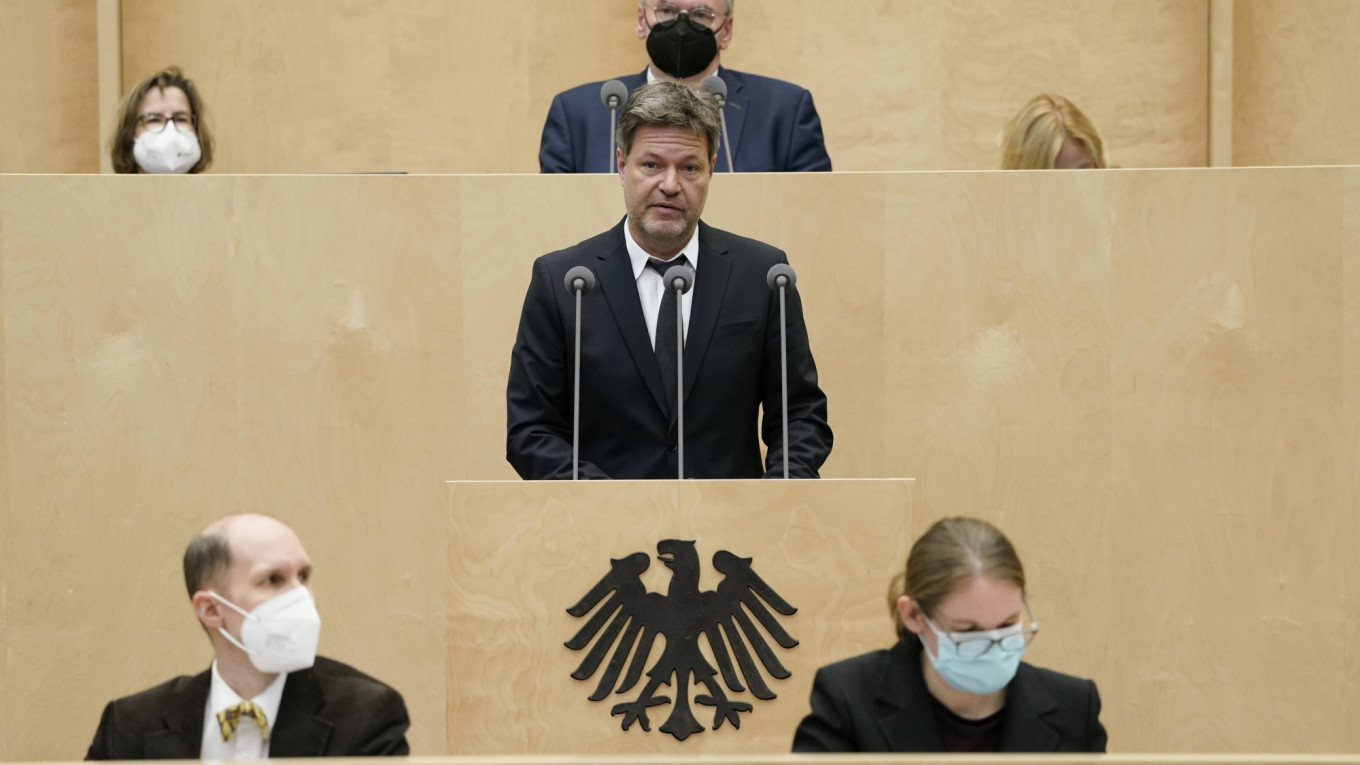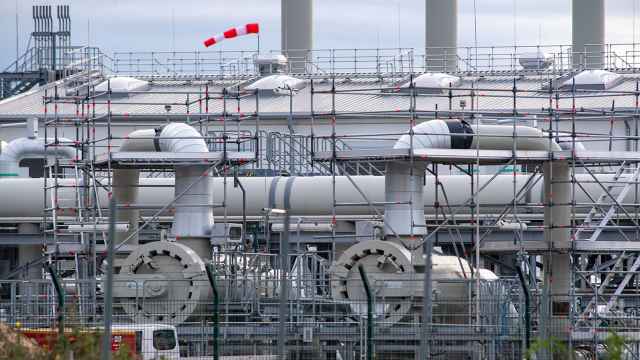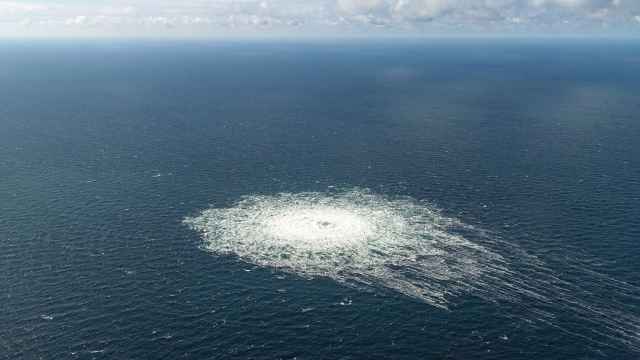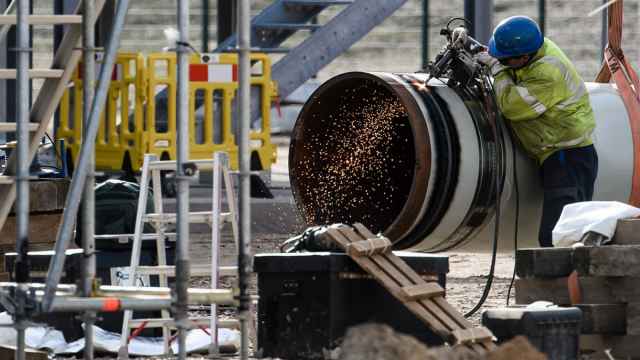German Economic Affairs Minister Robert Habeck warned in an interview published on Saturday of "severe consequences" for the Nord Stream 2 gas pipeline from Russia to Germany if Moscow attacked Ukraine.
The Baltic Sea pipeline is set to double supplies of cheap natural gas from Russia to Germany, which the European Union's top economy says is needed to help it transition from coal and nuclear energy.
But the 10-billion-euro ($12 billion) project has for years been dogged by delays and drawn fierce criticism from Germany's eastern EU allies like Poland and from the United States.
Critics say the project will increase Europe's dependence on Russian gas and Ukraine has described it as a "geopolitical weapon."
"Any new military action cannot remain without severe consequences," the Green minister told the Frankfurter Allgemeine Zeitung, a Sunday weekly, referring to a Russian troop deployment on the Ukraine border.
He warned that "nothing can be excluded" if "there is a new violation of the territorial integrity" of Ukraine.
The new German government threatened to block the pipeline from operating if Russia invades Ukraine.
"In the event of further escalation this gas pipeline could not come into service," Foreign Minister Annalena Baerbock said.
Habeck said: "From a geopolitical point of view, the pipeline is a mistake," adding: "All the countries were against it except Germany and Austria."
He added: "The pipeline has however been built. And the question of it being put into service remains open and must be decided according to European and German law."
German authorities are waiting for the pipeline's Swiss-based "Nord Stream 2 AG" operating company to submit documents to restart the certification process.
The pipeline would then also have to be approved by the European Commission — a process not likely to be completed in the first half of next year.
A Message from The Moscow Times:
Dear readers,
We are facing unprecedented challenges. Russia's Prosecutor General's Office has designated The Moscow Times as an "undesirable" organization, criminalizing our work and putting our staff at risk of prosecution. This follows our earlier unjust labeling as a "foreign agent."
These actions are direct attempts to silence independent journalism in Russia. The authorities claim our work "discredits the decisions of the Russian leadership." We see things differently: we strive to provide accurate, unbiased reporting on Russia.
We, the journalists of The Moscow Times, refuse to be silenced. But to continue our work, we need your help.
Your support, no matter how small, makes a world of difference. If you can, please support us monthly starting from just $2. It's quick to set up, and every contribution makes a significant impact.
By supporting The Moscow Times, you're defending open, independent journalism in the face of repression. Thank you for standing with us.
Remind me later.






